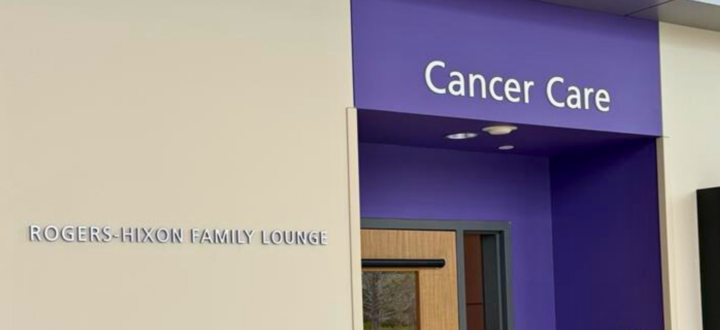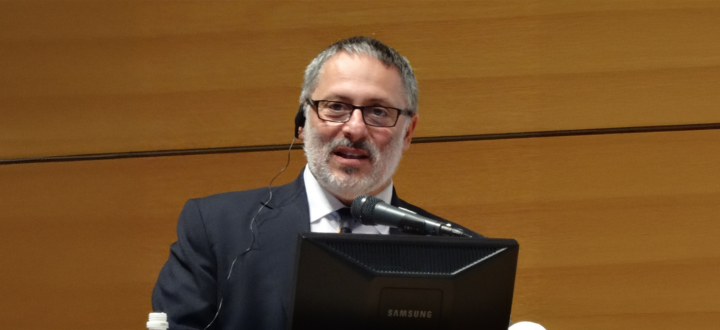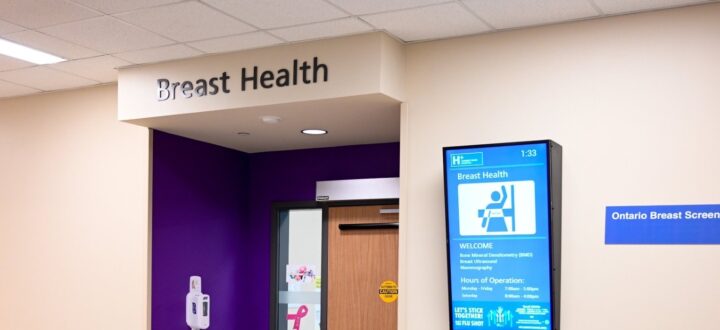Transanal Minimally Invasive Surgery (TAMIS): David’s Story
David remembers the day he was diagnosed with Stage 3 colon cancer.
“I was shocked,” he recalls. “Being diagnosed with cancer is scary.”
Only a few months prior he was told by a doctor that he wasn’t at risk for this type of cancer. He was in great health and he had no immediate family history of the disease.
“Telling my family was hard. When I told my daughters about my diagnosis, my daughter Lucy shared that she and her boyfriend Tim had just gotten engaged,” recalls David. “It was emotional. Throughout this whole ordeal, I knew I wanted to get through this and be healthy for their wedding.”
After his diagnosis, David kept in close contact with his family physician, Dr. Mark Essak. “When you live in a small community like Port Hope, everyone knows each other. I’ve known my family doctor for a very long time and he was so helpful throughout out my diagnosis and treatment.”
Transanal Minimally Invasive Surgery (TAMIS)
The surgeon who diagnosed David’s cancer had recently learned about a new procedure for difficult colorectal cancer called Transanal Minimally Invasive Surgery – or TAMIS. After considering his options, David was referred to Dr. Laz Klein, Division Head of General Surgery at Humber River Hospital. Dr. Klein is one of the Canadian pioneers of TAMIS and has been working to make this new procedure the standard of care in Ontario.
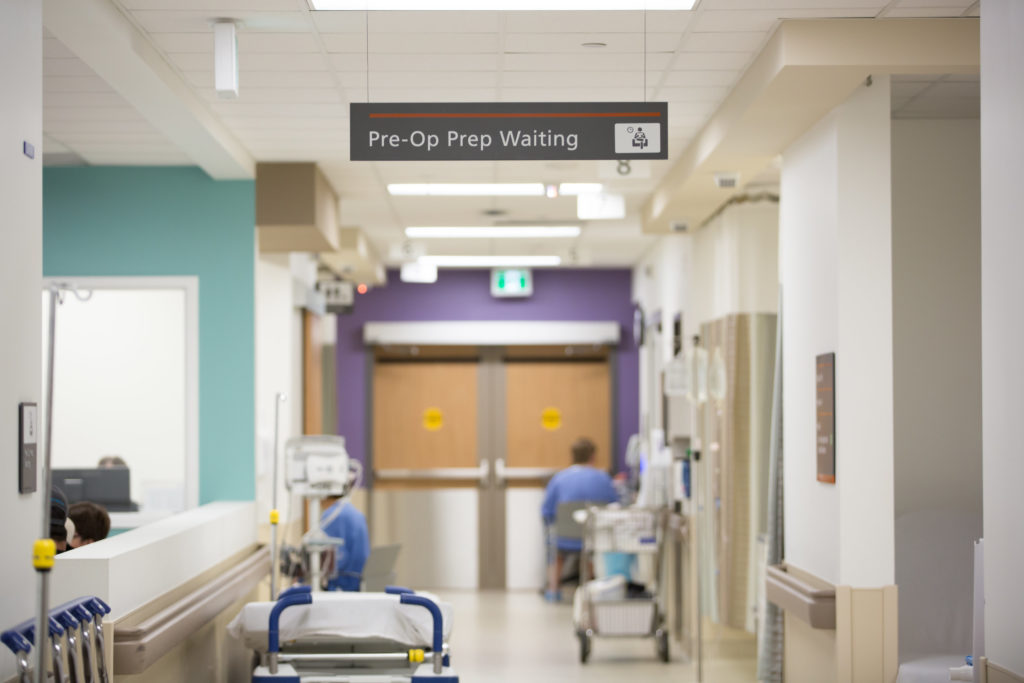
TAMIS enables surgeons to remove the cancer-affected area with greater precision.
“Dr. Klein is amazing. He’s a great guy and he kept me well informed the whole time,” David says. “The treatment was complex. It started with six weeks of radiation combined with chemotherapy, followed by surgery in October.”
Due to the location of David’s tumor and the advanced stage of his cancer, Dr. Klein had to remove an entire section – about one foot in length – of David’s large intestine and rectum.
TAMIS requires two surgeons working together to access the surgical site with minimally invasive laparoscopic instruments. This special access enables surgeons to more accurately remove the cancer-affected area of the large intestine and sew it back together with greater precision. The result is significantly less pain and blood loss, and the ability to regain full large intestine and bowel function in the future.
The alternative, or traditional open surgery, would have been much more invasive with a large incision from David’s sternum to his pelvis. It also would have necessitated a permanent colostomy or ileostomy bag, which is essentially a replacement bowel connected to the patient’s digestive tract through an external tube.
Fortunately, David was a candidate for TAMIS. He walked out of the hospital just six days after his first surgery.
Surgery and Recovery
For the vast majority of patients, TAMIS involves two surgeries. The first is to remove the areas of the intestine affected by cancer. While the large intestine heals from the first operation, patients wear a temporary ileostomy bag. The second surgery is to remove the external bag and connect the small intestine back to the large intestine.
“I had my ileostomy bag for about six months,” David says. “I was anxious about it, for sure. You have to be very diligent about your diet and make sure you clean the bag properly every day. I worried about it leaking – the smell isn’t exactly something you can hide.”
David has been a marathon runner for many years. He could not imagine having to deal with the bag on one of his long runs, which he had started to miss.
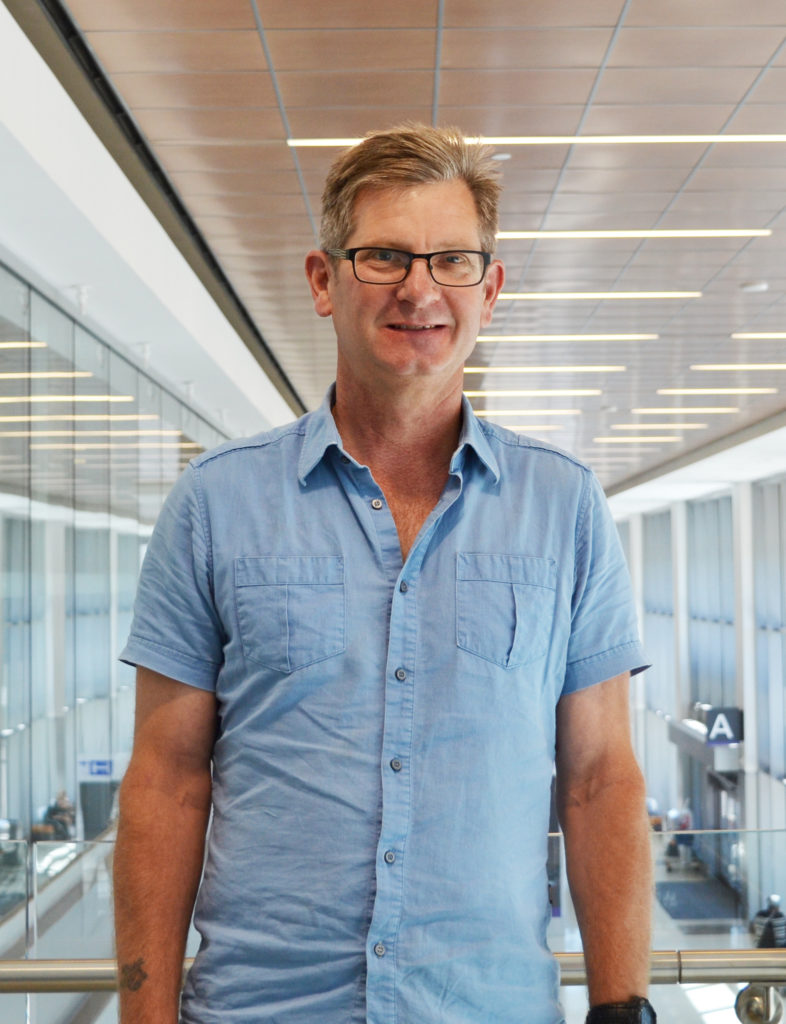
David’s advice to other patients is to learn about all available resources and to build a great relationship with your care team.
“I’m glad it was temporary,” says David. “If I had this operation years ago, I would have had to wear a permanent bag for the rest of my life.”
Between surgeries, David underwent chemotherapy at another hospital closer to home, and received visits from staff from Saint Elizabeth who helped with his homecare.
David’s second surgery, to remove the external bag and connect the small intestine back to the large intestine, took place a few months later.
“The care at Humber River Hospital was fantastic,” he said. “Everyone – from Dr. Klein, to the ostomy nurses, physiotherapists, nutritionists – either met or exceeded my expectations. I can’t thank them enough.”
David’s journey wasn’t easy, but he made it through.
“I remember I felt so sick at certain points, especially between the two surgeries when I was undergoing chemo. Sometimes it felt insurmountable,” says David. “Having a great support network really helped me.”
David’s advice to other patients is to learn about all available resources and to build a great relationship with your care team.
“I’m thankful for the care team I had, including my family and close friends, family doctor, Dr. Klein and the staff at Humber River Hospital, the hospitals where I had my radiation and chemotherapy treatments, and the homecare staff from Saint Elizabeth,” says David.
In May just two months after his second surgery, feeling stronger and increasingly like his normal self, David was grateful to be a part of his daughter’s wedding in Calgary. While he wasn’t physically able to participate in all of the festivities, he met his goal to be there and to be able tell his daughter, new son-in-law and guests how important it was to join them for such a wonderful occasion.



